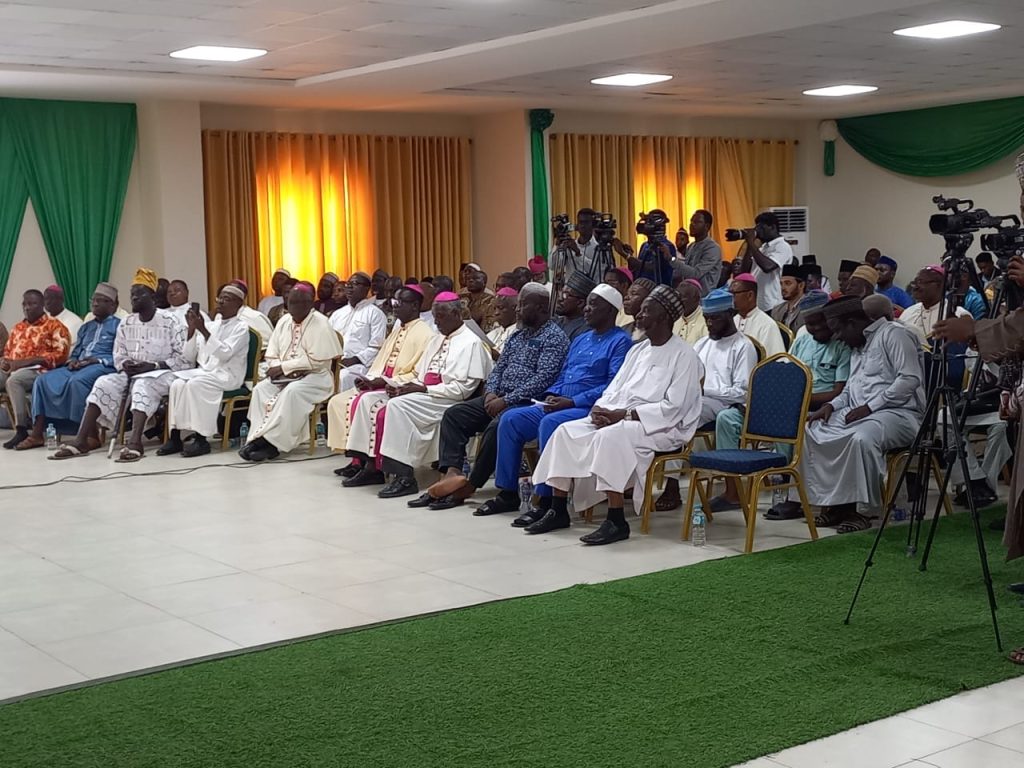By Hafsa Obeng
Accra, May 16, GNA – Dr Rabiatu Armah Koney, Senior Lecturer, Department for the Study of Religions, University of Ghana, says for development to take place in a country, there must be a change of attitude and mentality among its people.
She said, “as a country if we do not have morality undergirding all the big economic things like the mansions, school, complexes and all the things we think as being development, there is no development.”
Dr Koney made the observation at the second annual national Catholic, Muslim leaders dialogue conference, in Accra, on the theme, “Overcoming the barriers of religious prejudices for sustainable peace and development in Ghana – Successes and challenges.”
She said the theme for the conference was important and appropriate because it came at a time when as a circular nation, Ghana was trying to better the lot of its people through sustainable development programmes albeit the many challenges, and therefore there was the need to harness all opportunities from all angles, especially the religious angle.
She said this was important because it was the religious communities which provided the ingredients and resources which were the intangibles that propelled development.
“So, whenever you talk about peace and development, we are talking to the religious community because, it is the virtues, morals and values that undergird what we use to think as development being the once that were described in economic term.”
Dr Koney added that that “in all, these religions must therefore take a centre stage, and we as people in religion in Ghana must take a centre stage in ensuring that there is not only development but sustainable development”
“This conference is therefore a prospect for success and a process in a way for all to step up. We must come together within our context and play our respective roles for the development of the country. We cannot do it in isolation.”
On the issue of peace, the Senior Lecturer said peace could be attained through submission to the will of God, adding that the concept of neighbourliness was very imperative.
“The concept of neighbourliness also comes with challenges which normally constitute the intangibles, but we need to address them to have the peace and development we need.”
She commended the organisers for the initiative, saying, “the challenges in Ghana around religious tolerance, including education, and governance, can be addressed if we understand the inner dimensions of our religions and apply and tolerate them.
Mr Asamoah Boateng, Minister of Chieftaincy and Religious Affairs, said the price of peace was to have progressive development and it was the responsibility of the Government to bring about peace and development.
He said, “as people with various religious beliefs, our caring and friendly nature, understanding and love for each other have brought us the peace we currently enjoy and we must do anything to jeopardize it.”
He said 70 per cent of the national security problems came from chieftaincy, and urged chiefs to ensure to put in place comprehensive succession plans before they exit to avoid upheavals.
“It is better to have a piece of a bigger cake than a piece of a smaller cake, so we must begin to shape the youth to become good citizens who understand their rights and responsibilities to each other.”
Rev. Fr. Gabriel Kojovi Liashiedzi, Executive Secretary, Department of Pastoral Ministry and Evangelism, Catholic Bishops Conference, said the acceptance of the other, Christians and Muslims had been influenced by the all-embracing African traditional religion and culture.
He said Ghana had been a blessed country with an agreeable amount of religious tolerance compared to many nations in West Africa and there had been a collaboration among the various religious bodies and government, most especially in conflict resolutions.
“Our Ghanaian culture and traditions have played a key role in social cohesion in our motherland. We must know and keep the unique nation that the Creator has given to us with a rich heritage.”
He however, noted that care must be taken to eliminate all social vices in society, and be more concerned about influences, both internal and external which went a long way to promoting intra and inter religious conflicts in Ghana.
“Let us not attempt to import religious and other conflicts of other nations which are already at breaking point. Despite our “wahala” as a nation, God has blessed us with relative peace which is the envy of some of our neighbouring countries and beyond.”
Sheikh Dr Osman Nuhu Sharabutu, National Chief Imam, said, “Allah created us in diversity such that we know and acknowledge, know and recognise each other in diversity,” and commended the organisers for such a dialogue, urging them to sustain it.

Sheikh Salman Mohammed Alhassan, Member of the Dialogue committee, said this year’s dialogue was a follow up to last year’s conference to break the barriers of religious intolerance.
He said prejudice had kept people far away from each other, thus identifying this and trying to dialogue on it to promote coexistence was paramount.
He said the dialogue conference was to afford participants the opportunity to listen and dialogue over issues confronting people of faith.
GNA